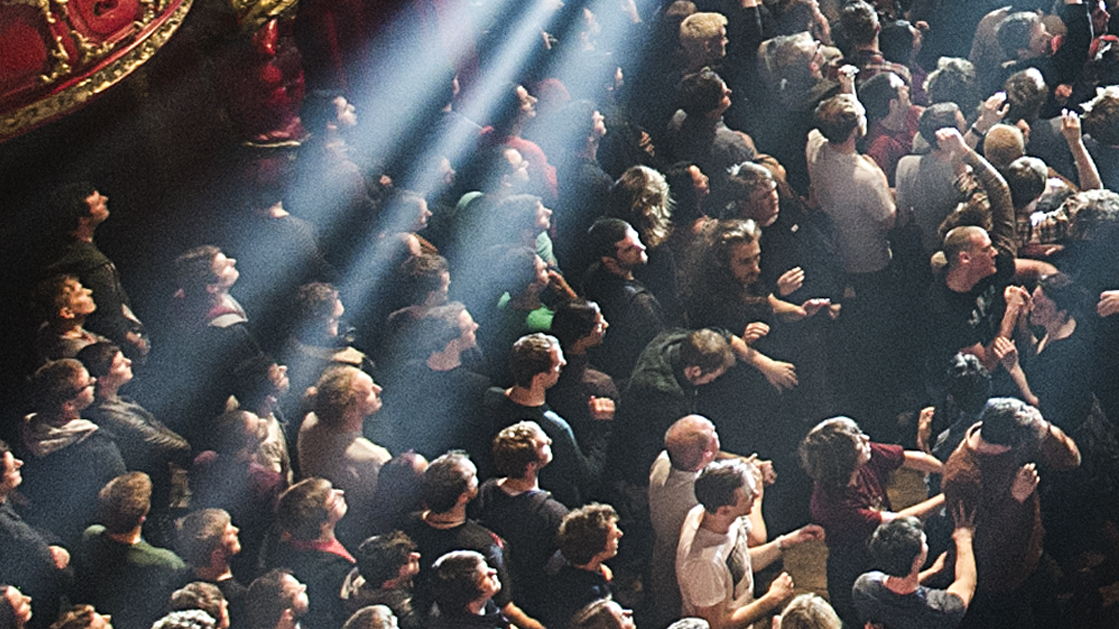David Surkamp, quasi-mythical frontman for this most cultish of 70s American bands, has lopped off his ponytail since the last time Pavlov’s Dog played here, in 2013. Apart from that, everything else remains in place, from Surkamp’s unearthly quaver to the band’s bizarre brand of folk-inflected prog.
What Surkamp, in sleeveless jerkin and shades, his wife Sara (vocals, acoustic guitar), Amanda McCoy (lead guitar, vocals), Abbie Steiling (violin, mandolin, vocals), Nathan Jatcko (keyboards), Rick Steiling (bass) and Manfred Ploetz (drums) achieve is no one’s business. Actually, no – it’s the business of everyone who reads this magazine and who has a predilection for music seemingly born of torment and pain, yet which is nevertheless arrestingly pretty and idiosyncratically structured.
The band appear without fuss or fanfare before the sparse crowd of faithful diehards and immediately start with Echo & Boo, followed by a storming Late November and Fast Gun from the still-astonishing Pampered Menial. This is uncannily powerful yet chillingly sad music that taps into all manner of private grief. The titles of the next two tracks – Crying Forever and We All Die Alone – say it all, with startling economy.
Some of their later songs are less artfully constructed, but the best ones are unique for the rock canon; even the prog one. Surkamp talks of events celebratory (he’ll be 64 tomorrow, he says, and, pointing to his missus, “married to this beautiful woman for a quarter of a century”) and tragic (he nods to late keyboardist Doug Rayburn, and Sigfried Carver, whose mournful violin was so crucial to their sound). All the deaths in the band… a pall of sorrow has always hung over Pavlov’s Dog.
Then Surkamp introduces the young musicians who are keeping the band’s name alive. They acquit themselves superbly on a predictably breathtaking Standing Here With You, while Episode and Song Dance are both thrillingly complex but succinct.
They encore with Angels Twilight Jump, Theme From Subway Sue and, finally, Julia, which two gentlemen in the audience have been requesting for most of the night: their thuggish shouts couldn’t be more at odds with the exquisite angst of the song. Julia manages to condense everything remarkable about Pavlov’s Dog – the out-of-time, almost medieval quality to their melodies; the sense of disfigured beauty represented by Quasimodo on the sleeve of second album At The Sound Of The Bell – into three extraordinary minutes. The queue to meet’n’greet Surkamp after the show is long: originals as true as this don’t come along often.

